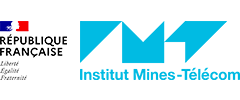Institut Mines-Télécom develops a specific ecological transition competency framework to train students
Each year, Institut Mines-Télécom (IMT) trains over 13,000 students who will become tomorrow’s engineers and managers and lead the transition to a low-carbon economy. Throughout their careers, regardless of the sector, they will be required to integrate ecological issues: finite resources, climate change, societal changes, biodiversity loss. This reality applies to all disciplines and calls for the redesign of course content and teaching methods. With its community of research professors strongly committed to innovative teaching methods, IMT has therefore established a competency framework to train engineers and managers with an awareness of the issues and ability to act to accelerate the ecological transition.
The ecological transition is by nature a complex and cross-sectoral issue that requires a new approach to knowledge transfer. Environmental science, no longer a separate discipline, must play a key role in all courses. In view of this, IMT has proposed a set of 4 meta-competencies that students must acquire over the course of their studies:
- Systematically analyze the impact of human activities on ecosystems and the climate
- Take a historical and forward-looking approach that promotes critical analysis and decision-making
- Exemplify individual responsibility to take collective action
- Create value chains compatible with a sustainable future: including anticipation, implementation and impact analysis

 Unsplash
Unsplash















